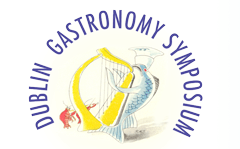Start Date
29-5-2024 12:15 PM
End Date
29-5-2024 12:30 PM
Description
Turkish coffee is unique in its brewing technique and deeply rooted in the culture developed throughout the Ottoman geography since the sixteenth century. The knowledge, skills and rituals of Turkish coffee are transmitted to new generations through observation, participation and practicing. Be it an elaborate ritual at the Ottoman court or a modest peasant pleasure, Turkish coffee requires dedicated time, manual skills and decorum. The pace of industrialization and urbanization in the twenty-first century forced people to acquire new lifestyles. This has put Turkish coffee service in jeopardy especially in public spaces. Owing to the Turkish coffee machine designed by an innovative Turkish company as of the early 2000s, traditional Turkish coffee brewing technique with cezve was simulated in order to lend coffee the characteristic taste and texture of traditional Turkish coffee. Today, various companies in the market are in rivalry to brew Turkish coffee with traditional taste. This paper aims to investigate how far technology enhances the revival of a tradition destined to fade. Considering Turkish coffee culture and tradition registered to the Intangible Cultural Heritage of Humanity list of UNESCO in 2013, it will be interesting to explore the role of technology in sustaining a tradition based on manual skills. However, the question will always be in the air: How can the knowledge and skills to craft Turkish coffee be transmitted to new generations?
Creative Commons License

This work is licensed under a Creative Commons Attribution-NonCommercial-Share Alike 4.0 International License.
DOI
https://doi.org/10.21427/5cc9-td59
Included in
Food Studies Commons, History of Science, Technology, and Medicine Commons, Islamic World and Near East History Commons, Near and Middle Eastern Studies Commons, Other Anthropology Commons, Other Arts and Humanities Commons, Other Languages, Societies, and Cultures Commons, Social and Cultural Anthropology Commons, Social History Commons, Sociology of Culture Commons
Sedimented for the Future: Can Technology Sustain Tradition?
Turkish coffee is unique in its brewing technique and deeply rooted in the culture developed throughout the Ottoman geography since the sixteenth century. The knowledge, skills and rituals of Turkish coffee are transmitted to new generations through observation, participation and practicing. Be it an elaborate ritual at the Ottoman court or a modest peasant pleasure, Turkish coffee requires dedicated time, manual skills and decorum. The pace of industrialization and urbanization in the twenty-first century forced people to acquire new lifestyles. This has put Turkish coffee service in jeopardy especially in public spaces. Owing to the Turkish coffee machine designed by an innovative Turkish company as of the early 2000s, traditional Turkish coffee brewing technique with cezve was simulated in order to lend coffee the characteristic taste and texture of traditional Turkish coffee. Today, various companies in the market are in rivalry to brew Turkish coffee with traditional taste. This paper aims to investigate how far technology enhances the revival of a tradition destined to fade. Considering Turkish coffee culture and tradition registered to the Intangible Cultural Heritage of Humanity list of UNESCO in 2013, it will be interesting to explore the role of technology in sustaining a tradition based on manual skills. However, the question will always be in the air: How can the knowledge and skills to craft Turkish coffee be transmitted to new generations?
